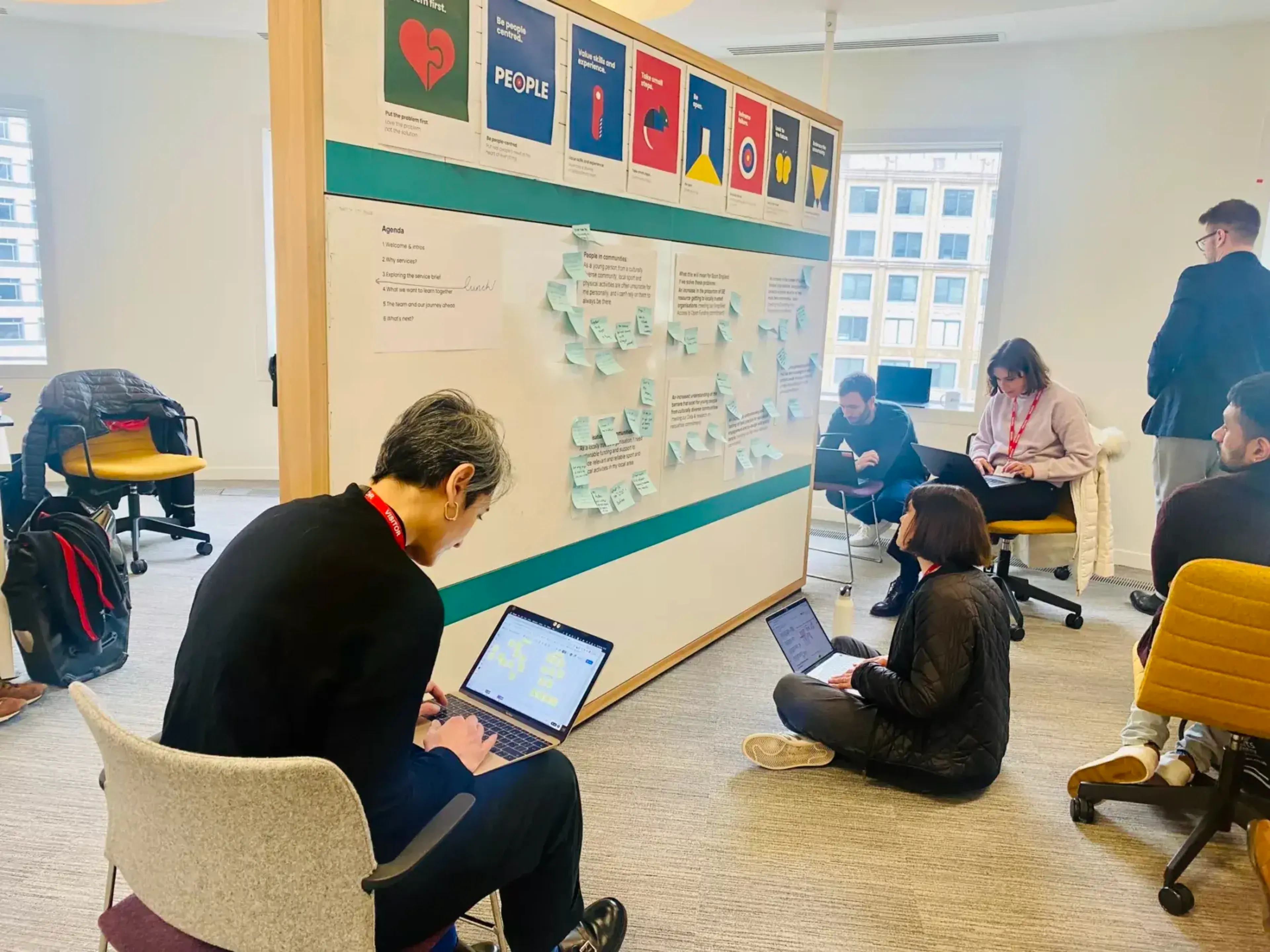
Katherine Wastell
Senior Director
Digital has become a fast-growing and highly lucrative industry. If you happen to be digitally skilled, the obvious place to seek out work is at the forefront of that high-profile digital growth: in large, private sector ‘tech’ organisations like Google or Facebook.
The gain of being part of those organisations is evident: the salary. But the potential drawbacks might not be so obvious until later: the sense of being a small cog in a vast machine, the nature of your work as profit-driven more than public purpose driven.
At Public Digital we work closely with many institutions and organisations outside the tech industry such as Sport England, the British Library, and UK Parliament.
We often see the same problem obstructing digital transformation for these clients: they have the right approach and the right vision, but they need to bring more digital and user centred skills in-house. Crucially, they are not seeing enough interest in the roles they advertise to recruit into their digital teams.
The reality is that these roles are truly fantastic opportunities for people with digital skills, but the glare in the digital industry from high-profile tech organisations means that, very often, they are being missed.
Compared to working for Google, the benefits of bringing your skills to public purpose organisations like Sport England or UK Parliament are less well advertised. But there are so many reasons why these are great places to work if you are digitally skilled.
Here are just a few of them:
These organisations are working to serve citizens and communities, or to further a cause. As an employee, you have the chance to really make a difference in the work you do.
For instance, Sport England is funded by the National Lottery and the UK government’s department for Digital, Culture, Media and Sport. It works to change lives across England by funding projects, running campaigns, and carrying out research to tackle inequalities in sport and engage people to be more physically active. Initiatives like their Studio You, part of the This Girl Can campaign, have helped to make secondary-age girls more active than at any point since Sport England’s first survey on girls’ physical activity in 2017. The work of Sport England’s digital leaders, as much as the rest of its team, is focused on the transformative campaigns and research which underpins this organisation.
Another public-purpose institution with a very different purpose is UK Parliament, which functions as the country’s legislative body. The everyday work they do challenges and defines laws, as well as shapes key decisions on current political and social issues. Unlike traditional jobs in tech, a digital leader at UK Parliament does indispensable work as a steward of a democratic institution.

While commercial and tech organisations play an important role in society, their values and purpose can often be complicated by their need to make a profit. Public purpose organisations are still occupied with financial considerations like how to secure government funding, but this largely involves demonstrating the public value of their work, rather than maximising income. As a result, those organisations are free to have a clarity of purpose less defined by profit.
If you are open to working in a public purpose organisation, you will see the benefits of being part of a team with a greater clarity of purpose. From the British Library’s archival and historical work, to Sport England’s research and physical activity campaigns, there is far more scope in these organisations for your values and interests to align directly with the work that you do.
You may not think of non-tech organisations as the natural home for an ambitious digital leader, but they absolutely are.
Creating digital change in a non-digital environment is difficult. It involves working across the whole organisation to drive culture change and operational change in the service of digital transformation tailored to that organisation. Someone recruited to a digital role in an organisation like Sport England, for instance, will be responsible for shaping the entire discipline of digital there.
If you are an ambitious digital expert, this is the best place to prove what you are made of. You may find the challenge and the scope of work overwhelming at times, but the opportunity will be like no other available to you, certainly not as an employee within a large tech organisation.
This is particularly true within the public sector, where digital decision-making increasingly interacts with its policy-making, and where a digital expert will have the chance to exert influence even at the heart of the institution. And unlike the emphasis on constant renewal in the private sector, the value of many public sector institutions lies in their antiquity, meaning that the work of digital leaders in adapting them for the digital age is pivotal. The UK Parliament, for example, has its origins in the 13th century, making it one of the oldest continuous representative assemblies in the world. Bringing a historic institution like this one into the digital era is no small achievement.
As a result, digital experts in non-digital organisations have a lot of control, a lot of leverage, and - if they do a good job - a fair degree of prestige in the work they do. Their example highlights the value of being more than just a cog in a machine.
In successfully leading digital transformation within an organisation, you will earn a reputation for having effected real change and created a buzz around digital within that institution. And having taken on the challenge of coaching digital within a non-digital environment, you are likely to emerge from the experience a stronger, more knowledgeable expert.
Doing this kind of work enables you to make a name for yourself in the industry, and the opportunities which follow will be lucrative, exciting and broad in scope.
The founders of Public Digital saw this in their work with the Government Digital Service as well as with the Co-op. As key figures who had led digital transformation in these organisations, they had acquired the reputation and the expertise to take their skills wherever they wanted to go. In the end, they used them to establish their own company.
At Public Digital we guide the digital strategy of multiple organisations from the outside. The professional background of our people spans leadership roles in digital across numerous non-tech organisations from national governments to NGOs to the NHS.
This means we know how rewarding it is, despite the inevitable challenges, to lead the digital transformation of a public purpose organisation. We know all about the doors it will open for you, and how much you can learn from doing it.

Senior Director